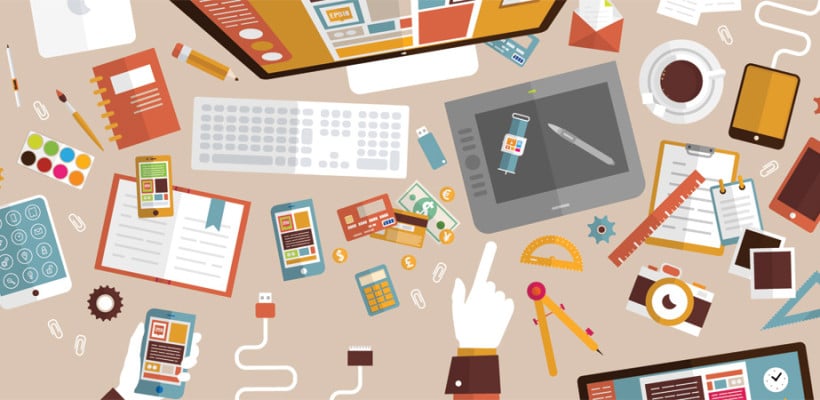Like most smartphone owners in this day and age, we can’t image our lives without one. For some of us, our smartphone is an extension of ourselves. We’re shocked and awed when we discover that so-and-so doesn’t own a smartphone…I mean how can they not have access to the Internet or WhatsApp or iMessage at all times?!
Why have we become attached at the hip to our smartphones? What about them makes us feel “naked” without one? At its core, it keeps us connected to others. Our smartphones provide us with a steady stream of interesting notifications, status updates, and yes, cat photos. More than that, smartphones supposedly let us turn “downtime” into productive time.
But is that really true? Do smartphones make us more productive? Or do they actually destroy our ability to focus, and ruin our “output” so to speak? The answer is…complicated.
For sure, we see some definite benefits to using our smartphones, especially in the workplace:
- Employees can access their calendars and agendas from their smartphone. In many cases, this keeps people more organized.
- Employees can attend to tasks without having to return to the office. This eliminates commuting time, and so the end result is employees that are more productive. This remote access allows employees to do work they’d normally have to wait to do. This can also get tricky…being available all the time isn’t always a good thing. We’ll get to that a little later.
- Employees can enhance productivity by taking a break from the office. A change of scenery such as working from a local coffee shop for an hour can boost productivity. This is when having a smartphone comes in handy.
- Researchers at Kansas State University found that giving employees micro breaks to text or play Candy Crush helped employees recover from some of the stress of their day.
On the other hand, converting “down time” to work time, and being able to “stay in touch” with what’s happening at work at all times is a bad policy. What’s actually happening in the life of many professionals is that their companies have taken the opportunity given them by technology to convince employees to spend more “down time” doing work. At the same time, they send a subtle message that “staying in touch” with work also means being available 24 hours a day for 52 weeks of the year.
Furthermore, a Michigan State University Study found that smartphones can zap workers’ productivity when they used them late at night. This study found that employees who tried to cram in more work at night got less done at work the following day. Because smartphones keep employees mentally engaged into the wee hours of the night, it’s hard for them to detach from work, relax and fall asleep.
In short, if you misuse your phone, it can make you less engaged at work, wreck your ability to recharge, and undermine your efforts to concentrate.
So what’s to be done?
Organizational psychologists emphasize segmentation and detachment for mental health and long-term productivity. If your professional life is segmented, then you have a clear line between working hours and personal hours. If you’re experiencing detachment, then your mind is far from work. So in order to recharge — as the above study suggests — you need to detach, which requires segmenting your work and personal lives. For example, enlightened companies take a page out of the medical profession, which has long realized that it’s important to maintain some kind of boundaries in their professionals’ lives. Companies can put in place policies that clearly delineate time spent “at work,” “on call” and “away from work.” They recognize that these are three distinct modes that must be enforced if employees are expected to function at their best.
Additionally, do not attempt to multi-task. An obvious example is texting and driving. Don’t do that ever. Researchers have discovered that if you attempt to multi-task all the time, you will reach a point in which you won’t be able to concentrate at all, even when you’ve shut down every other screen. Have a big project coming up? Put your phone on silent. If you can’t control yourself, shut it off and put it on the other side of the room. If you still don’t trust yourself, drain your phone’s battery and forget your charger at home.
Going to bed? Don’t put it next to your bed (unless you’re on call and expecting a phone call in the middle of the night). Make sure it’s far enough away from you that you wouldn’t risk getting out of bed to grab it.
So while smartphones provide a lot of value in our daily lives, depending on how we use them, they can be a huge help or an infuriating nuisance. It’s up to us to use them wisely.

